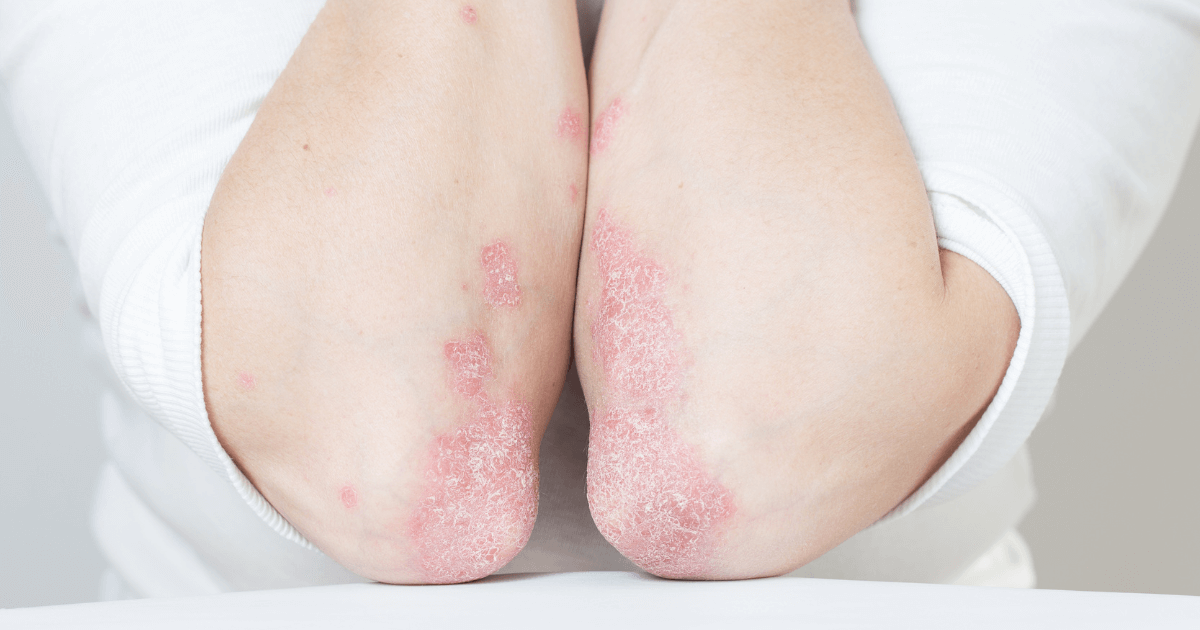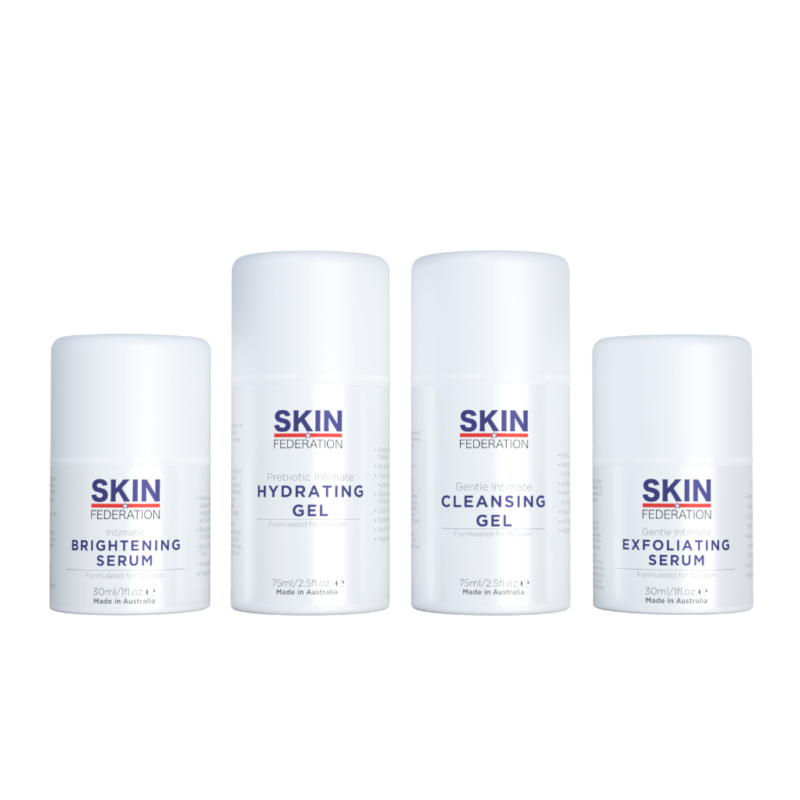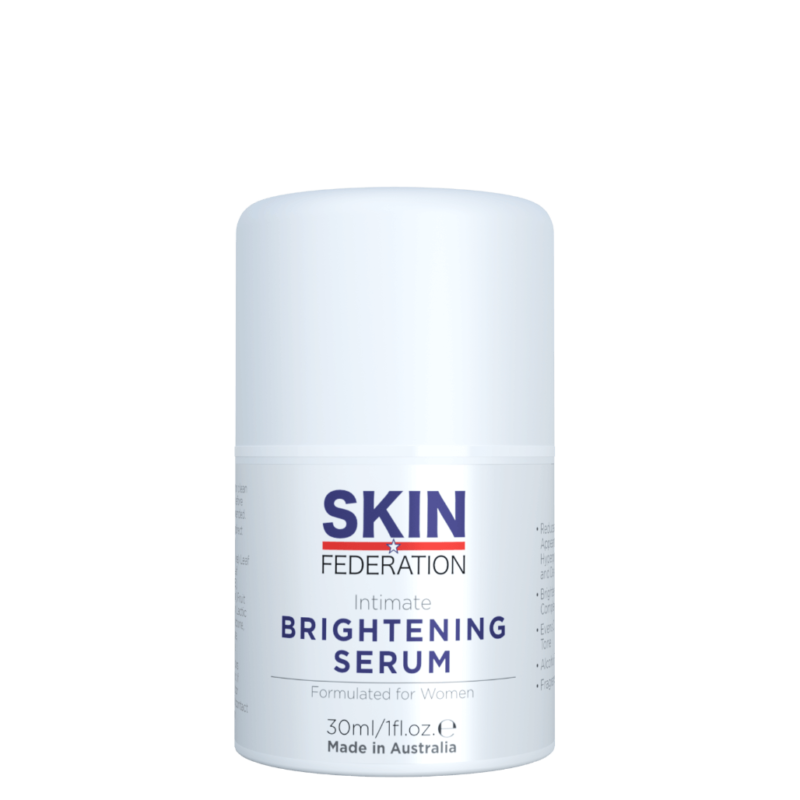Quick Takeaway
Post-inflammatory hyperpigmentation (PIH) is the darkening of Skin that occurs after inflammation or injury. Common causes include acne, waxing, shaving, rashes, or ingrown hairs. While not dangerous, it can leave stubborn marks—especially on sensitive Skin and intimate areas. The good news? With the right care, you can reduce and even prevent these discolorations.
Introduction
Dark spots after shaving, ingrown hairs, or Skin irritation? That’s likely post-inflammatory hyperpigmentation (PIH)—a form of Skin discoloration that appears after your Skin has healed from inflammation. It’s especially common in intimate and high-friction areas like the bikini line, underarms, and inner thighs. The key to treating PIH lies in understanding what causes it and using gentle, effective skincare that supports healing and even Skin tone.
What Is Post-Inflammatory Hyperpigmentation?
Post-inflammatory hyperpigmentation is a type of Skin darkening caused by an overproduction of melanin after the Skin has experienced inflammation, trauma, or irritation.
What it looks like:
- Brown, purple, or grey patches
- Flat discoloration (not raised or textured)
- Common in areas recovering from shaving, acne, waxing, or friction
Why it happens: Melanin (the pigment that gives Skin its colour) rushes to the area as part of the healing process, but over time it can accumulate and remain as a dark mark.
What Causes Post-Inflammatory Hyperpigmentation?
1. Shaving and Waxing
Both can irritate the Skin, especially in sensitive areas, leading to PIH.
2. Ingrown Hairs
These inflamed bumps often leave behind dark spots as they heal.
3. Acne or Folliculitis
Breakouts or inflamed follicles leave pigmentation after the redness subsides.
4. Rashes or Friction
Chafing or irritation from clothing or movement can cause inflammation, triggering PIH.
5. Scratching or Picking at Skin
This prolongs healing and increases the risk of dark marks.
How to Treat Post-Inflammatory Hyperpigmentation
1. Brightening Serums
Topical serums with ingredients like alpha-arbutin, niacinamide, white tea leaf extract and pineapple fruit extract help fade discoloration gently.
- Try: Intimate Brightening Serum — formulated for sensitive and intimate areas, it targets dark patches without irritation.
2. Consistent Skincare Routine
A daily routine that combines cleansing, exfoliation, hydration, and brightening is essential.
- Try: Intimate Hyperpigmentation Skincare Routine — complete care for fading marks, calming Skin, and preventing new discoloration.
3. Gentle Exfoliation
Exfoliating 2–3 times per week helps shed pigmented dead cells and promotes cell renewal.
- Use chemical exfoliants (like AHAs, BHAs and PHAs) instead of scrubs
- Avoid over-exfoliating, which can worsen inflammation
4. Soothe and Hydrate
Keeping the Skin moisturised reduces irritation and supports a healthy Skin barrier.
- Look for products with hyaluronic acid, panthenol (Provitamin B5) or prebiotics
5. Prevent Further Irritation
- Avoid tight clothing
- Use a clean, sharp razor
- Don’t pick or scratch inflamed Skin
FAQs
Q: How long does PIH take to fade?
A: With consistent care, mild cases may fade in 4–6 weeks. Deeper discoloration may take longer.
Q: Can I use face products on intimate areas?
A: No. Use products specifically formulated for sensitive, intimate Skin to avoid irritation.
Q: Does sunscreen help with PIH?
A: Yes, for exposed areas. SPF prevents existing spots from darkening.
Conclusion
Post-inflammatory hyperpigmentation is a common and treatable concern. With gentle brightening products, consistent exfoliation, and irritation prevention, you can gradually fade those stubborn marks. Whether it’s from shaving, ingrown hair, or friction—don’t worry, you’re not stuck with it.
Reclaim your confidence with our Intimate Brightening Serum and Intimate Hyperpigmentation Skincare Routine, designed to safely and effectively treat discoloration.
A targeted 4 step routine designed for a gentle pigment correction of the intimate Skin. It delivers the benefits of de-pigmenting agents, anti-oxidants, fruit exfoliating acids, humectants and natural moisturising factors (NMF)
BUY NOWA corrective brightening serum infused with de-pigmenting agents, anti-oxidants and fruit exfoliating acids for a gentle pigment correction of the intimate Skin.
BUY NOW


